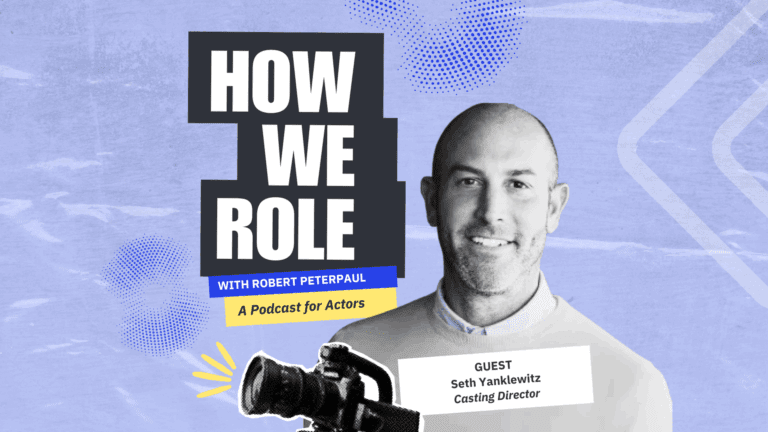Every area of the industry has felt the effects of COVID-19, but various disciplines within it have been affected in different ways. Industry members who weren’t accustomed to always being on set, such as screenwriters, might have found the adjustment to remote work a bit easier. We went straight to the source to find out for this COVID-19 edition of our A Day in the Life series. Daniel Blake Smith has written and produced titles such as the John Savage-starring Texas Heart and the Emmy-nominated documentary February One: The Story of the Greensboro Four. Smith took time from a number of upcoming projects he’s working on to talk with Casting Networks about the extent to which the pandemic has affected his day-to-day life as a screenwriter.
How has the work of a screenwriter changed since the effects of COVID-19 hit the industry?
Well, being a writer involves a lot of alone time, and COVID-19 has given us a lot of that. In that sense, I guess you could say that COVID-19 has been a boon to writers, perverse as that sounds. And since I write mostly for film, it’s been an easier, less-transformational kind of experience for me than for people who write primarily for television. I’ve had a lot of time to work on projects and to reach out to people in the world of development. And since they’ve had more time than usual to read projects, I’ve been able to get a couple of projects read, off the ground, and set up for production. I have at least two projects coming up for production this fall, assuming we don’t have a resurgence of the virus. The miniseries Proof is one of them, and it’s the only television project I’m working on at the moment, which means it does involve some Zoom meetings. My producing partner Stephanie Tobey is helping me produce the project with Atlas Entertainment, and I’m getting a taste of the whole COVID-19 virtual meetings situation as we’re shopping it around via Zoom.
 What does an average day look like for you these days?
What does an average day look like for you these days?
It starts with lots of coffee and ends with wine, or as I like to say, “Uppers in the morning and downers in the evening.” I write best in the morning hours so I try to write a solid three pages of a script every day, which is usually a couple of scenes. If I’m on a roll, I might get through five or six pages. They may not be ready-to-shoot pages, though. In fact, the first thing I usually do each morning is to rewrite the pages I wrote the day before. The great playwright Tennessee Williams used to say about playwriting, “You don’t write plays; you rewrite them.” And I think that’s even truer of screenwriting. After I spend time writing in the morning, I’ll transition to working on the producing side of things since I’m also a producer. That can involve attaching talent to projects, and we’re currently reaching out to Pierce Brosnan and Miles Teller for my upcoming thriller Blood Born. I’ll also spend time answering query letters from other writers about their own work. And then I take a good, long walk — my wife and I walk five or six miles a day. With the world we’re living in right now, it helps get us out of the house and keeps us sane. I’ll end the day by seeing what’s new and intriguing on Netflix or Hulu. In the process, I might even scout out the showrunners and keep them in mind for my own projects.
Any advice for those interested in getting into screenwriting?
First off, I would tell them to reconsider because they’ll have a hard time making a living at it [Laughs]. But to be more helpful, I would mention that everybody says you have to develop your own fresh and original voice as a writer in order to get noticed. That’s true, but in my mind, what gets you produced and worth watching is having a story worth telling. In the indie world where I live, story is king, not big-name casts, huge budgets, or tentpole franchises that studios manufacture. If you have a story that you feel must be told and comes from a place of passion, it will command attention. That cultivates in the directors, producers, and actors who read the script a belief in the writer. So my advice would be to work on developing a story that matters. Unforgettable stories stick with us because they amuse us, scare us, or provoke us. If you’re moved or inspired by such a story, ask yourself if it matters enough for you to try and tell it. If the answer is “yes,” you’re on your way.
Smith’s experience as both a screenwriter and producer in the midst of COVID-19 might serve as an encouragement for all industry members, since it demonstrates that stories are still getting written and produced during this time. And since people in front of and behind the camera are all storytellers in their own right, Smith’s closing words during his interview can impart some universal wisdom: “I’m always very inquisitive and open to hearing new stories,” said Smith. “It’s important to keep asking questions.” This need to learn and share via the art of storytelling is a common thread between people in various disciplines of the industry, and it will continue long after the effects of COVID-19.
Looking for your big break writing for film and TV? Our sister site Staff Me Up has all of the latest Writer Jobs that you can apply for today.
—
This interview has been edited and condensed.
Follow us on Facebook, Twitter, and Instagram for breaking industry news and exclusive offers!













